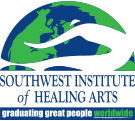Have you ever stood in a garden and felt the calming power of lavender, the gentle energy of chamomile, or the invigorating scent of peppermint? These aren’t just pleasant experiences—they’re introductions to the ancient and powerful practice of Western Herbalism, a path of healing that begins with the natural world around us.
At its heart, Western Herbalism is the art and science of working with medicinal plants native to Europe and North America to support health and wellness. It’s a journey back to our roots—quite literally—and it's more relevant today than ever before. With modern lifestyles often disconnected from nature, studying herbalism reconnects us to the earth, to holistic wellness, and to traditions that have supported human health for centuries.
What Is Western Herbalism?
Western Herbalism draws from folk traditions, empirical knowledge, and modern science. It emphasizes the healing properties of plants like echinacea, dandelion, elderberry, yarrow, and countless others that grow all around us—sometimes even in our own backyards. Unlike synthetic pharmaceuticals that often isolate compounds, herbalism honors the synergy of the whole plant, supporting the body’s natural healing processes in a more gentle and sustainable way.
Herbalists are part gardener, part healer, part scientist, and part historian. They learn to recognize plant allies, prepare tinctures and teas, and match herbs to the energetic patterns of the body. They also become stewards of the earth, practicing sustainable harvesting and building deep respect for the ecosystems that give us this green medicine.
Why Study Herbalism Now?
In a time when more people are seeking natural, preventative approaches to health and well-being, herbalism offers empowerment. Whether you’re a wellness enthusiast, a holistic practitioner, or someone simply curious about nature's remedies, herbalism provides tools for self-care and community care.
Studying herbalism helps you:
- Understand your own body and how to support it through seasonal and life changes
- Create custom herbal preparations for yourself and loved ones
- Cultivate a relationship with plants and the natural world
- Integrate plant medicine into holistic careers like massage therapy, life coaching, aromatherapy, and wellness education
Begin Your Herbal Journey at SWIHA
The Western Herbalism programs at Southwest Institute of Healing Arts (SWIHA) are designed to take you from novice to knowledgeable, whether you’re seeking a personal passion or a professional path. Our curriculum blends traditional wisdom with hands-on training and modern insight, offering both certificate and diploma options.
Students learn:
- Materia Medica: In-depth knowledge of medicinal plants
- Herbal Preparations: How to make tinctures, salves, teas, and tonics
- Botany and Plant Identification: Learn to recognize and ethically harvest healing plants
- Holistic Body Systems: Understand how herbs support different organs and imbalances
- Business and Ethics of Herbal Practice: For those who wish to take their skills into a professional space
Courses are taught by experienced herbalists and holistic health professionals, and you’ll find yourself learning both in the classroom and outdoors, connecting with the desert flora of Arizona and the broader traditions of Western herbal medicine.
Whether you’re dreaming of starting an herbal product line, working in holistic wellness, or simply living more in tune with nature, SWIHA offers a supportive, accredited path to help you grow—literally and spiritually.
Ready to Work with the Wisdom of the Earth?
Your herbal journey starts with a single leaf, a single class, a single moment of curiosity. Explore the Western Herbalism Programs at SWIHA and step into a world where the medicine cabinet is green, vibrant, and alive with possibilities.


